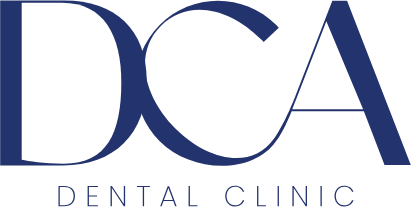- Home
- Aftercare
Aftercare
Proper aftercare is essential to ensure a successful recovery after any dental procedure. Whether you’ve had a routine cleaning, tooth extraction, dental implants, or other treatments, following the post-treatment instructions from your dentist is critical. Here’s a comprehensive guide on general aftercare following dental visits:
General Aftercare Instructions
Every patient’s oral health and treatment plan is unique. To support proper healing after a tooth extraction, it’s important to follow the specific aftercare guidelines provided by your dentist. These instructions are tailored to your individual needs and help reduce the risk of complications.
Some discomfort is normal after a tooth extraction. Use over-the-counter pain relievers, such as ibuprofen or acetaminophen, as directed by your dental professional. Avoid taking aspirin unless it has been specifically recommended, as it can increase the risk of bleeding.
Tooth Extractions
Allow your body time to heal by taking it easy for the first 24–48 hours after your tooth has been removed. Avoid strenuous activity, as rest supports faster recovery and reduces the risk of complications.
Gently bite down on the gauze pad your dentist places over the extraction site. Keep it in place for 30–45 minutes to help stop the bleeding and encourage a clot to form. If bleeding continues, replace it with a clean gauze pad and bite down firmly for another 30 minutes.
Apply an ice pack to the outside of your cheek near the extraction area for 15–20 minutes at a time. This can help minimize swelling and relieve discomfort during the first 24 hours post-surgery.
Avoid drinking through a straw or any similar mechanisms for at least 48 hours. The suction can dislodge the blood clot forming in the socket, which is essential for healing. If the clot comes out too soon, it can lead to a dry socket which can cause pain.
Stick to a soft-food diet for the first few days after your extraction (such as yogurt, mashed potatoes, smoothies, applesauce, and scrambled eggs). Avoid hot, spicy, crunchy, or hard foods, as they can irritate the extraction site and disrupt healing.
After Dental Implants
For the first few days following your dental implant procedure, avoid strenuous exercise or heavy lifting. Resting helps reduce swelling and supports the body’s natural healing process around the implant site.
Maintaining oral hygiene is essential after dental implant surgery. Brush and floss as recommended, but be especially gentle around the surgical area. To reduce swelling and minimize the risk of infection, rinse your mouth with a warm saline solution several times a day, especially after meals.
Stick to soft foods during the initial healing phase, and chew on the opposite side of your mouth to avoid pressure on the implant. Stay away from hard, crunchy, or sticky foods, as they can interfere with healing.
After Root Canals
Mild to moderate discomfort is normal after a root canal procedure. Your dentist may recommend over-the-counter pain relievers or prescribe medication to keep you comfortable during the healing process.
After getting your temporary crown, avoid sticky, chewy, or hard foods that could loosen or damage it. Try not to chew on the treated side of your mouth until your permanent crown is placed to protect the area.
After Dental Cleanings
Maintain your regular brushing and flossing routine, but use a soft-bristled toothbrush and be gentle around sensitive areas.
If fluoride varnish (such as Profluorid/Profi ) was applied at the end of your cleaning, do not eat, drink, or rinse for at least 30 minutes. This allows the fluoride to fully absorb into the enamel for maximum protection. For the rest of the day, avoid hot, hard, or sticky foods.
Tobacco and alcohol can irritate your gums and interfere with healing. Refrain from using them for at least 24 hours after your appointment, especially following deep cleaning procedures.
Drink plenty of water following your cleaning. Staying hydrated helps flush out residual plaque, tartar, or fluoride treatments, and promotes overall oral hygiene.
Monitor for Complications
If you experience intense pain, swelling, fever, or notice pus near a treated area, these could be signs of an infection. Contact your dentist immediately for evaluation and treatment.
If you’ve been prescribed medication, monitor your body for any unusual reactions such as rash, itching, swelling, dizziness, or trouble breathing. These could be signs of an allergic reaction. Stop taking the medication and contact your dentist or doctor right away if any symptoms occur.
Attend All Recommended Dental Check-Ups
Your dentist will schedule follow-up visits to check on your healing progress and complete any necessary treatments, such as placing a permanent crown or assessing implant integration. Attending these appointments is essential for long-term oral health and successful recovery.

